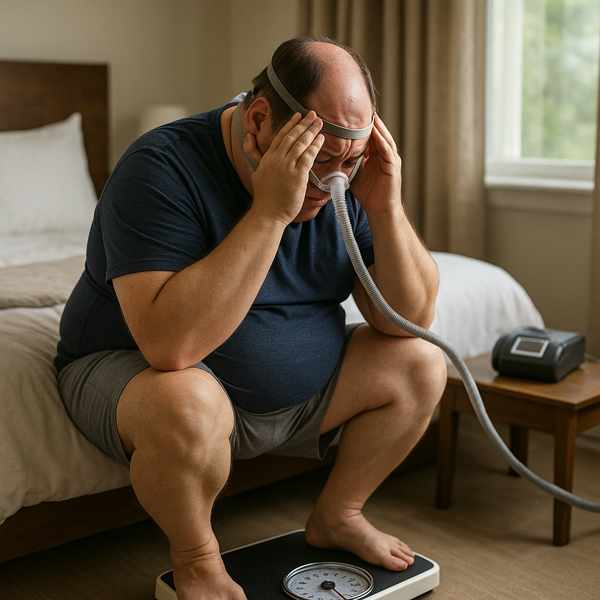Can Weight Loss Naturally Treat Obstructive Sleep Apnea?
Can Weight Loss Naturally Treat Obstructive Sleep Apnea?
Blog Article

Many people with sleep apnea experience difficulty sleeping, loud snoring, and interrupted breathing patterns.
Let’s explore how shedding pounds can affect this sleep condition.
Understanding Sleep Apnea
Sleep apnea occurs when breathing repeatedly stops and starts during sleep.
Common symptoms include:
- Loud snoring
- Interrupted breathing patterns
- Excessive daytime tiredness
- Morning headaches or dry mouth
The Link Between Weight and Sleep Apnea
Fat deposits in the throat may narrow the airway, making it more likely to collapse.
Key risk factors include:
- More weight increases OSA risk
- Narrows the airway path
- Can contribute to airway collapse
Does Losing Weight Help OSA?
In many cases, losing weight can dramatically reduce or eliminate sleep apnea symptoms.
Possible benefits of weight loss:
- Less airway obstruction
- Better oxygen flow
- More natural treatment options
- Feel more rested and alert
However, weight loss may not cure sleep apnea in all cases — especially if anatomical issues or severe OSA are present.
Realistic Expectations
Studies show that losing just 10% of body weight can reduce OSA severity by up to 50%.
Tips:
- Start with small, achievable goals
- Sustainable changes make a difference
- Notice snoring, energy, and daytime fatigue improvements
Lifestyle Changes That Help
Effective strategies:
- Eat a balanced, whole-food diet
- Boosts metabolism and burns fat
- Sleep on your side
- These relax throat muscles and worsen apnea
Working with a nutritionist or sleep specialist can provide more personalized support.
When Weight Loss Isn't Enough
While weight loss is helpful, it may not fully resolve sleep apnea for everyone.
- Keeps airways open at night
- Custom-fitted mouthpieces to reposition jaw and tongue
- Surgery in severe cases
Is Weight Loss the Answer?
So, can weight loss cure sleep check here apnea? In many cases, it can help manage the condition.
Talk to your healthcare provider, make informed decisions, and take proactive steps toward better health and rest. Report this page